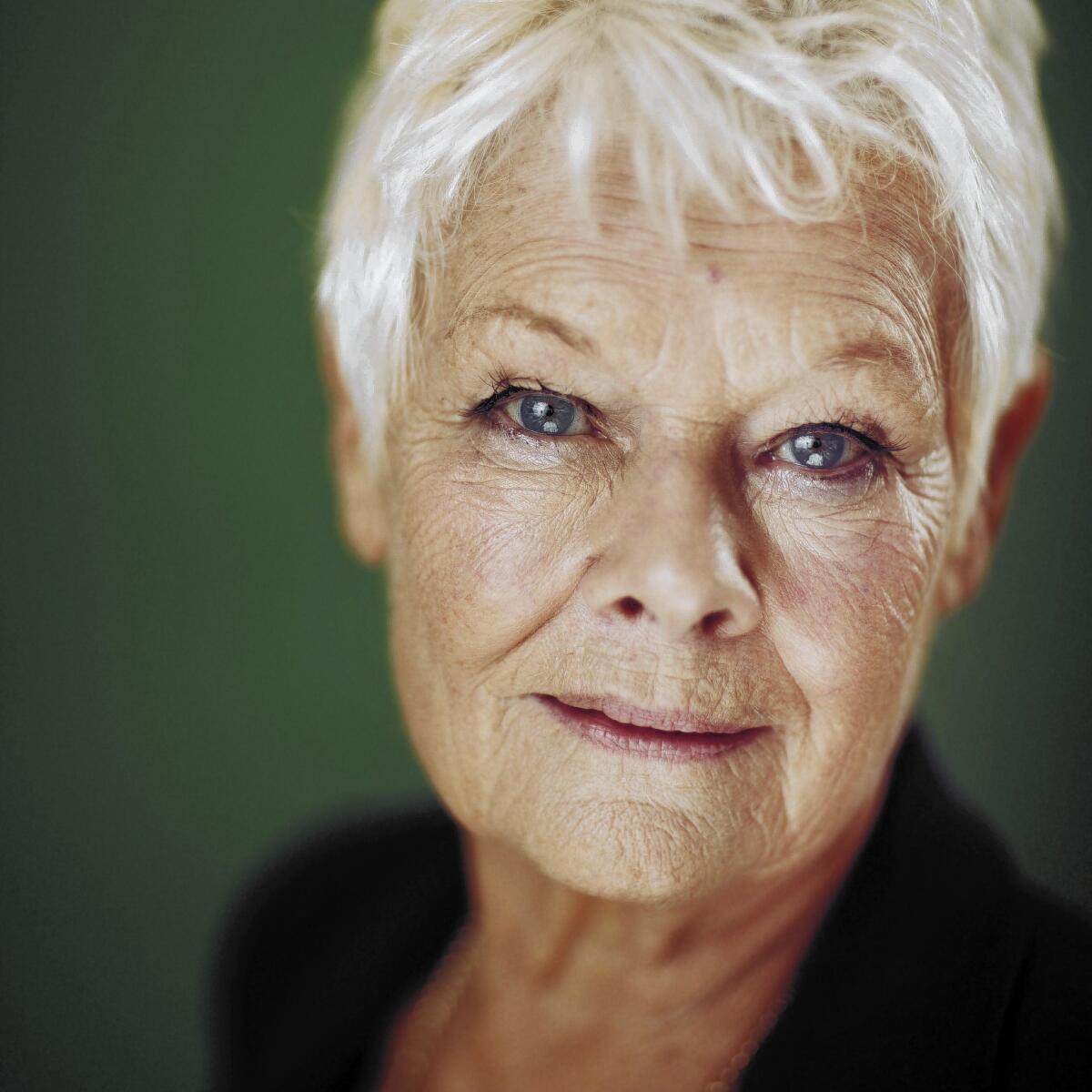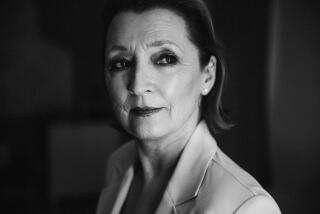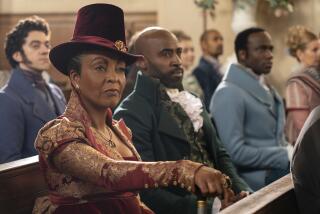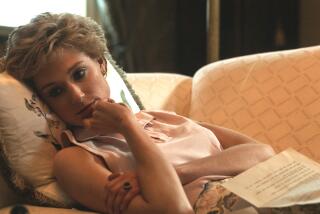Judi Dench felt a tremendous responsibility toward Philomena Lee

LONDON — The first time Judi Dench witnessed the power of acting, she was 7 and saw her brother get away with using a swear word.
Dench was accompanying her parents to a boarding school performance of “Macbeth,” with her oldest sibling in the role of King Duncan. “He came on stage and said, ‘What bloody man is that?’” Dench said, with a gasp. “I thought, ‘What did he say?’”
Now 79, Dench has performed nearly every play of Shakespeare, Chekhov and Ibsen, as well as the role of M in seven James Bond films; Queen Elizabeth in “Shakespeare in Love,” for which she won her Oscar in 1998; and Queen Victoria in “Mrs. Brown,” for which she collected one of her five other Oscar nominations.
Dench’s latest performance — for which she has so far received Screen Actor Guild and Golden Globe nominations — is as a more ordinary but just as dignified woman in the drama “Philomena,” in which she plays a working-class Irish mother who enlists a jaded journalist (Steve Coogan) to help her find the son whom nuns forced her to give up decades earlier. Written by Coogan and Jeff Pope, and directed by Stephen Frears, “Philomena” is a true story adapted from the book “The Lost Child of Philomena Lee,” by Martin Sixsmith.
Some critics have called the movie anti-Catholic for its harsh portrayal of the church’s treatment of unwed mothers, but Dench sees the story as one of fidelity.
“I don’t think it’s a polemic against Roman Catholicism; I think it’s a film that’s unbelievably about faith,” said the British actress.
In an interview in a London hotel suite in October after “Philomena’s” premiere at the London Film Festival, Dench was warm and funny — her blue eyes twinkling mischievously as she dropped onto the suite’s rotating bed, and shared her views on religion, acting and life after Bond.
Dench’s own faith is Quakerism, which she calls, “a strength I can’t do without.”
REVIEW: Judi Dench brings out the best in ‘Philomena’
She joined “Philomena” after Coogan came to the garden of her 17th century home in Kent, England, and read her his script — the actress has vision loss from macular degeneration.
“That’s always the best way to hear a story, to hear it told to you,” Dench said. “There was no question in my mind that I wanted to do it, primarily because she’s a remarkable person. There must be very few people who would be able to come through all that.”
In preparation for the role, Dench spent time with the real Philomena Lee, whom she described as somewhat “childlike.”
“There’s a tremendous innocence about her, real genuine innocence and shyness,” Dench said. “She made me laugh a great deal. I watched her and listened to her as much as I could. The responsibility to somebody who’s alive and whose story it is is absolutely considerable. You can do all kinds of things with Queen Victoria and Elizabeth I, but you can’t with somebody who’s standing right over your shoulder.”
The film reunites Dench with Frears, who directed her in the 2005 comedy “Mrs. Henderson Presents.”
“We have a shorthand now,” Dench said. “Always at the end of a shot when he says to you, ‘Do you want to go again?’ you know that means he wants to go once more. I would like to think we’re going to work together again. All I’m trying to do is to squeeze myself into Lycra and get on a bike to send him a photograph so he can put me in his Lance Armstrong movie.”
LIST: Complete list of SAG Awards 2014 nominees
Dench recently said goodbye to what is perhaps her most iconic screen character, the imperious M from the James Bond series — a role that exposed her to a new audience of “my grandson’s friends,” she said.
“Mi6 would have probably given her the push by now,” Dench said. “And I have had 17 years — four films with Pierce [Brosnan] and three with Daniel [Craig]. I think I’ve been pretty lucky, and I don’t actually feel sad about it. I’m terribly pleased I did it. I shall miss them, though, and when I know they’re starting [to film again], I expect I’ll get quite beady.”
The actress, who has always loved to paint, is adapting to the difficulty of her lost vision.
“I paint quite a lot,” she said. “Just now I’m having terrible trouble seeing, but I don’t want to make a thing of it. If you think of Monet, he painted what he thought he saw.”
A friend is teaching Dench to sculpt in soapstone, she said. And her other art, acting, continues to beckon. In November she returned to an old role as the Egyptian queen in a scene from “Antony and Cleopatra” at the 50th anniversary of Britain’s National Theatre, where she got her start. And in the spring she’s scheduled to film “Esio Trot,” a BBC adaptation of a Roald Dahl story in which she’ll star opposite Dustin Hoffman.
“The arts are an essential bit of life,” Dench said. “There is a need for us to see things, experience things, to feel, to be made to face ourselves, to understand an emotion in ourselves that we might need to see portrayed. It’s something to do with facing yourself and understanding yourself, and it’s vital.”
More to Read
Only good movies
Get the Indie Focus newsletter, Mark Olsen's weekly guide to the world of cinema.
You may occasionally receive promotional content from the Los Angeles Times.











